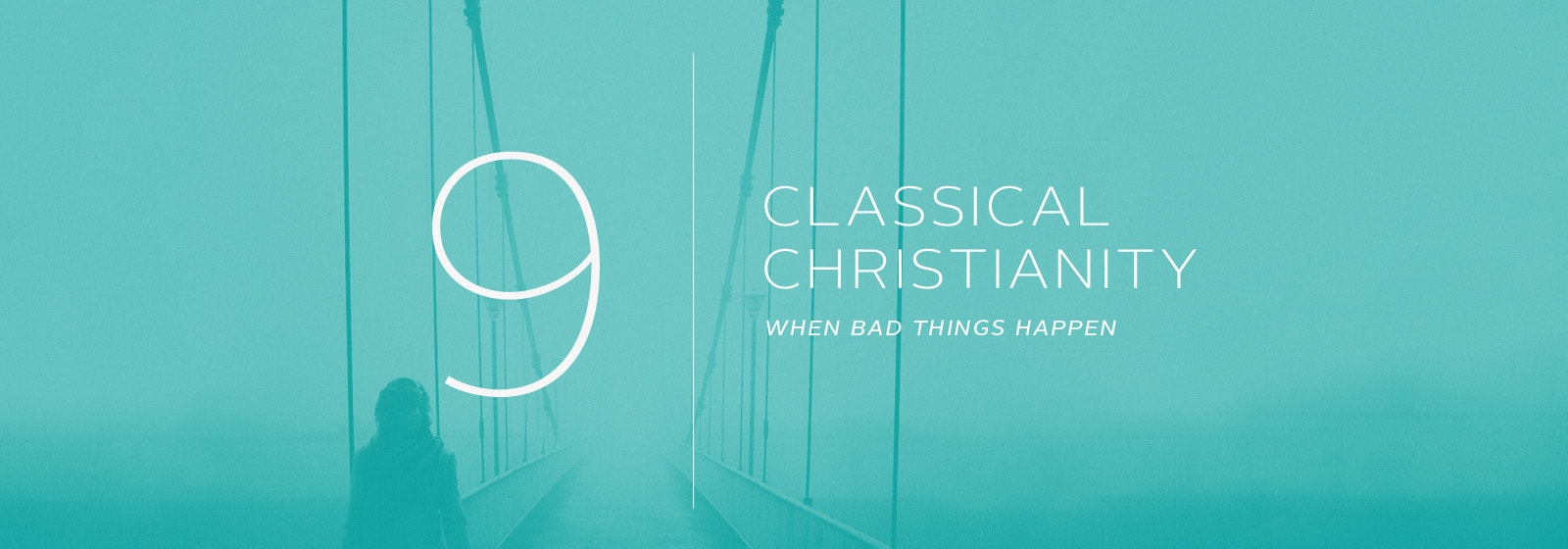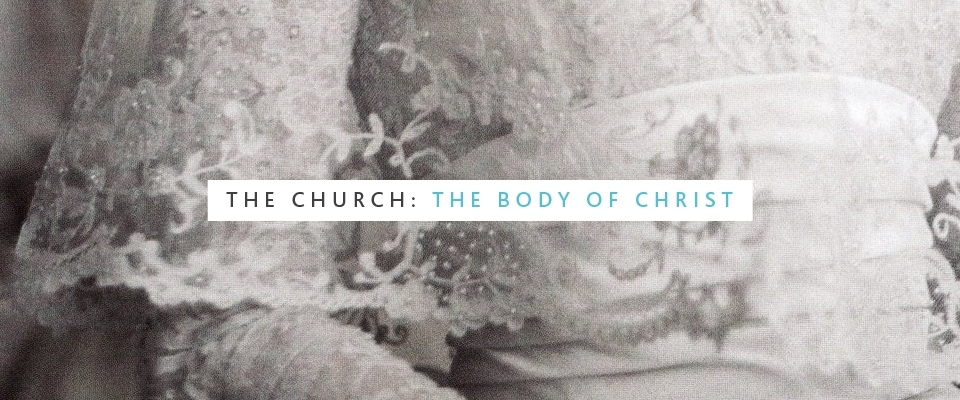Douglas Todd, the Religion Reporter for the Vancouver Sun, recently wrote an article entitled, Liberal Christianity – 10 things to know about this ‘middle way.’ In the article he claims that Liberal Christianity is the faith practiced by most mainline Protestant and even many Roman Catholic Christians in North America. He outlines 10 points of Liberal Christian belief on topics ranging as widely as Jesus, sex, social justice and death. This current series, Classical Christianity – 10 things to know about this ‘ancient way,’ is our response to his article. Although there are some things that Classical Christianity can affirm in each of Todd’s 10 points, there is also much that must be added to, or rejected completely.
Today, we will continue with the ninth point of Liberal Christianity: When bad things happen:
When bad things happen, atheists sometimes turn to Christians and rhetorically demand: “So where is your God now?” The question hinges on the incorrect assumption that progressive Christians believe God controls everything, like a supernatural dictator. Liberal Christians tend to believe life is a combination of chance and divine purpose. Given they have free will, humans can engage in moral evil, whether they’re Hitler, members of Boko Haram or wanton polluters. In a creativity-filled universe, chance also makes it possible for bad things to happen in nature, like a destructive avalanche. Liberal Christians believe that, out of suffering, God works to bring new order and healing.
At the heart of this point are two very contentious issues both for those inside the church as well as those outside: God’s sovereignty and the issue of human suffering. The former is touched on first, when Todd points out the incorrect assumption that Liberal Christians believe that God controls everything “like a supernatural dictator.” Instead, Todd suggests that progressive (another term he uses for Liberal) Christians believe that life is a combination of both chance and divine purpose. Since humans have free will, they are free to engage in evil activities and that can have a negative impact on others and the world generally.
The Classical Christian position would affirm the fact that humanity has free will. Scripture and the early church fathers attest to this. Augustine writes in Retractions:
There is, to begin with, the fact that God’s precepts themselves would be of no use to a man unless he had free choice of will, so that by performing them he might obtain the promised rewards. For they are given that no one might be able to plead the excuse of ignorance, as the Lord says concerning the Jews in the gospel: “If I had not come and spoken unto them, they would not have sin; but now they have no excuse for their sin.”
While Augustine is clearly referring to our ability to choose or to reject God, this logically extends to all areas of life. For if we have free will when it comes to whether or not we will accept Jesus for who he claims to be, then we must have free will in all facets of life. And, if Classical Christianity can affirm that we have free will to choose the ultimate good — salvation in Christ — then it would also affirm humanity’s ability to engage in moral evil.
Classical Christianity would affirm, however, that God does still control everything. Liberal Christianity seems to see these two things, God’s sovereignty and humanity’s free will, as mutually exclusive. Classical Christianity on the other hand has no problem holding these two things in tension. This is why Clement of Rome (c.AD80-140) can say in one letter “It is therefore in the power of every one, since man has been made possessed of free-will, whether he shall hear us to life, or the demons to destruction” (Recognitions, Book IV, 19). And this in another, “May God who sees all things, and who is the Ruler of all spirits and the Lord of all flesh — who chose our Lord Jesus Christ and us through Him to be a peculiar people” (Letter to the Corinthians, 64).
While it is in the power of everyone to choose whether he will hear the call of Christ to life, God is still the one who is ultimately in control and rules over all things. Simply because God has given us free will does not mean that he cannot ultimately be in control of all things. God is not just another person with the ability dictates our thoughts and actions. He is the God who made each and every one of us and who is sovereign over the whole universe. Classical Christianity doesn’t force us to choose one over the other.
The second issue that we must address in Todd’s point is the issue of suffering. Todd begins with a question that is often asked in the face of suffering: “Where is your God now?”It is a mocking question, implying that because suffering exists in the world, God is either not loving or caring as we claim, or there simply is no God. According to Todd’s analysis it seems that Liberal Christianity would try to explain suffering by going immediately to the question of free will and divine purpose. Classical Christianity, however, goes immediately to the cross of Christ.
Pope John Paul II sees suffering not as something that is to be explained away, but rather as something that is to be wrestled with. In his Apostolic Letter Salvifici Doloris, he states: “we are conscious of the insufficiency and inadequacy of our explanations.” He believes that in order to truly grasp the meaning of suffering, we must look, “to the revelation of divine love, the ultimate source of the meaning of everything that exists.” Ultimately he concludes that love is, ‘the fullest source of the answer to the question of the meaning of suffering. This answer has been given by God to man in the Cross of Jesus Christ” (SD, III, 13).
The Classical Christian response to the problem of suffering is not a theological response, citing free will and the sovereignty of God. Rather it is a pastoral response. We are to enter into the suffering of the other and point them to Christ – the one who was “despised and rejected by men; a man of sorrows, and acquainted with grief” (Isaiah 53:3).
In our last post of the series, Roger will respond to the tenth point of Liberal Christianity: Death and the open beyond.




